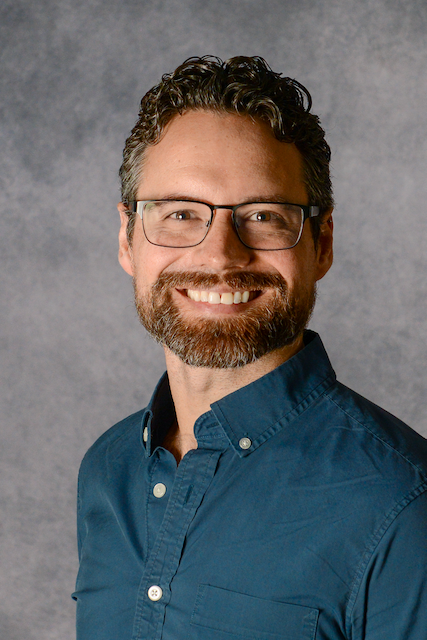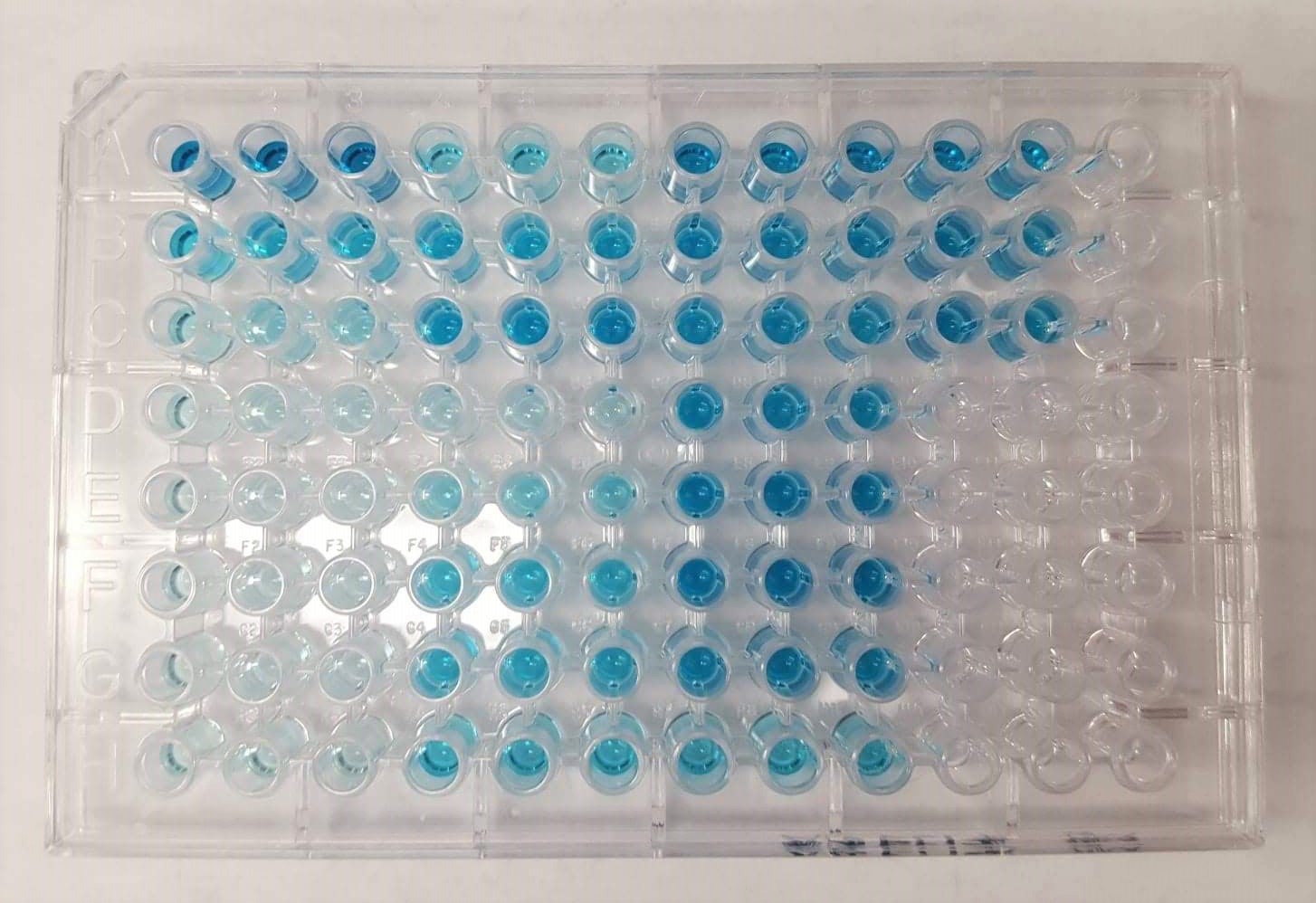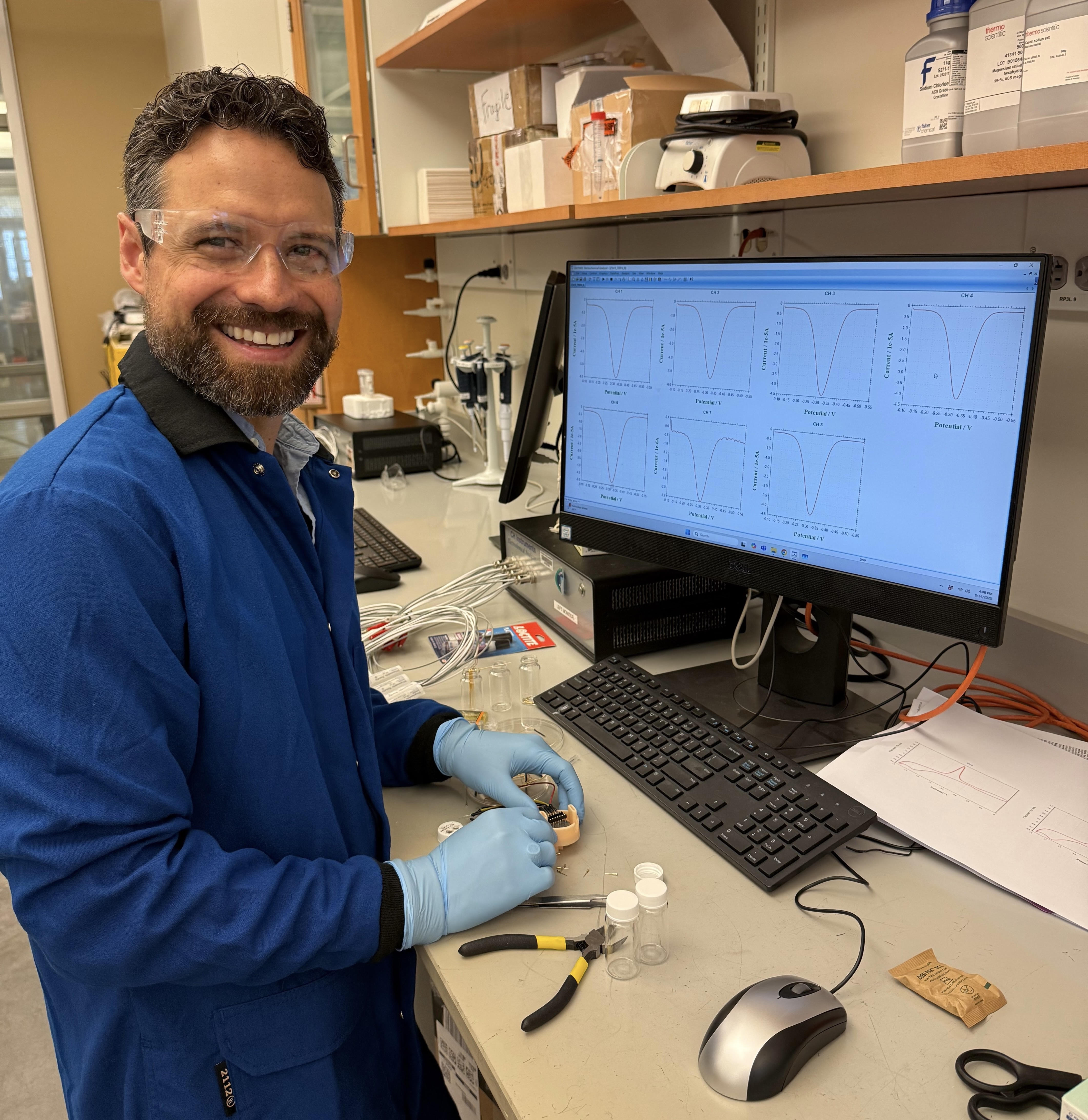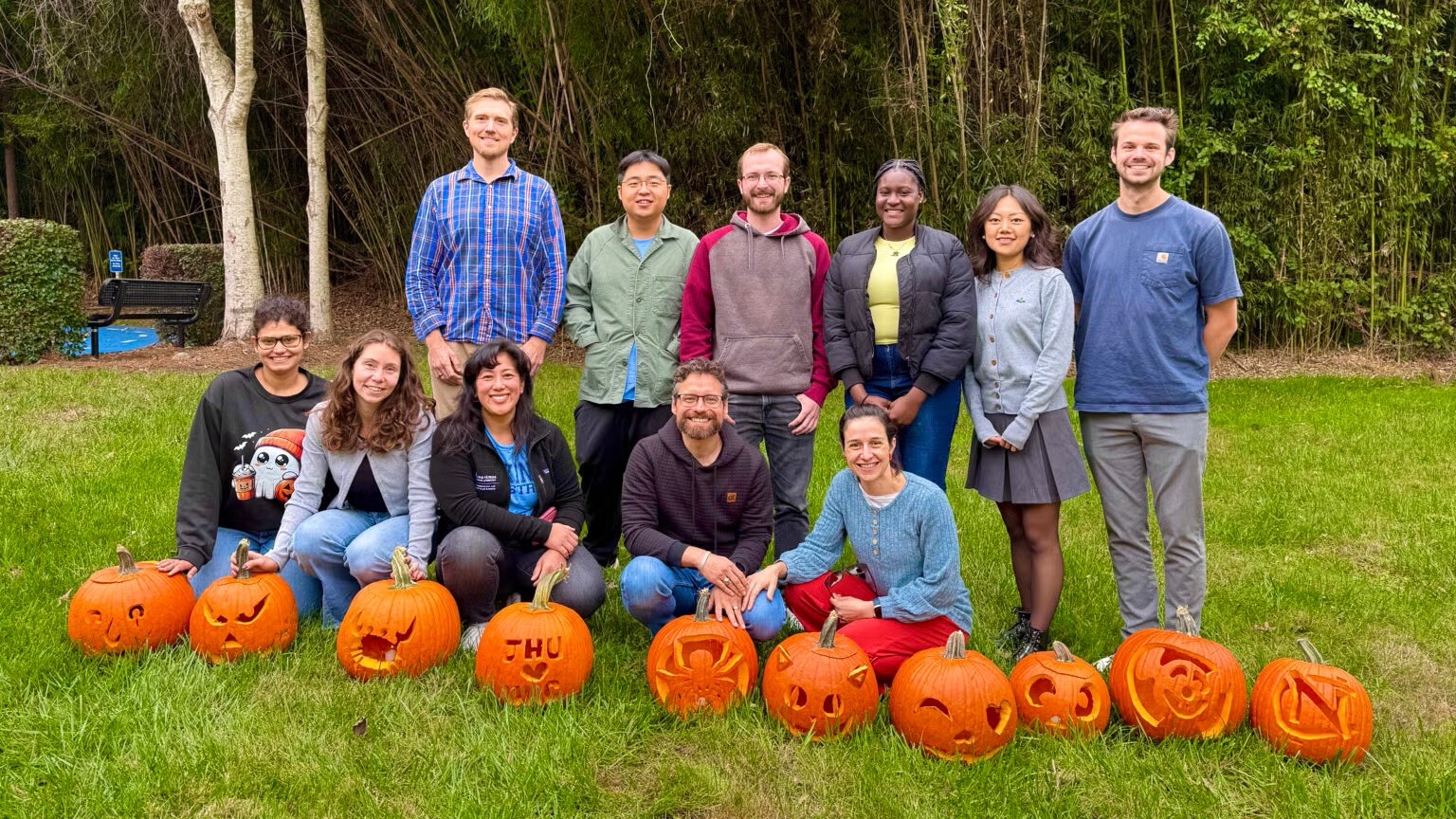
Netz Arroyo
Associate Professor
Caudill 322narroyo@unc.edu
Group Website
Research Interests
Bioaffinity Receptors, Biosensor Platforms, Therapeutic Monitoring in Vivio, Glucometer-based Immunoassays, Interfacial Electrochemistry
Research Synopsis
We utilize affinity receptors to ensure specificity in our measurements, selecting them through modified systematic evolution of ligands by exponential enrichment (SELEX) approaches—either developed within our group or in collaboration with partners. As an initial focus, we are building a library of DNA-based biosensors to enhance our ability to track pharmacological agents, their metabolites, and related biomarkers in vivo. However, our work extends beyond DNA; we are also exploring receptors with diverse natural and synthetic chemistries. A significant part of our efforts is dedicated to engineering receptors that enable efficient signal transduction to electronic interfaces.
Our ability to detect molecular targets in vivo relies heavily on the characteristics of implantable electronic devices. A key focus of our work is designing and fabricating electronic platforms that withstand prolonged exposure to biological fluids, remain minimally invasive, and enable high signal-to-noise measurements. Additionally, we dedicate significant effort to developing software for real-time control and processing of electrochemical measurements.
We leverage our biosensor platforms to study the transport of therapeutics, metabolites, and biomarkers in the body, aiming to enhance real-time health monitoring and deepen our understanding of how biomarkers reflect health status. Our platforms also have the potential to enable precise therapeutic dosing tailored to individual biochemical profiles, advancing the goal of truly personalized therapy. Additionally, we apply our technology to improve insights into pharmacology and metabolism in preclinical research models and to develop diagnostic tools for clinical applications.
The COVID-19 pandemic brought the world to a standstill, highlighting the urgent need for biosensor infrastructure capable of screening disease immunity at a population level—affordably and efficiently. Driven by this realization, we developed a fusion protein that enables the integration of over-the-counter glucometers with immunoassays. Given their widespread availability, FDA approval, and existing integration with telehealth infrastructure in many regions, glucometers serve as ideal detectors for diagnostic assays. We continue to advance and clinically validate our antibody sensing approach
We aim to develop rationally designed monolayers through self-assembly or controlled deposition, ensuring they withstand continuous potential modulation in biological fluids for extended periods (days to weeks). Our goal is to create chemically stable biosensing interfaces capable of supporting molecular monitoring over time scales relevant to human physiology and metabolism.
Professional Background
Netz Arroyo (Full Name: Netzahualcóyotl Arroyo Currás) is an Associate Professor of Chemistry. He earned his B.S. in Chemistry from Tec de Monterrey. He then pursued a Ph.D. in Analytical Chemistry at the University of Texas at Austin under the mentorship of Allen J. Bard, focusing on electrochemical energy storage and electrocatalysis using scanning electrochemical microscopy. For his postdoctoral research, he relocated to California to work with Kevin W. Plaxco at the University of California Santa Barbara, developing innovative electrochemical biosensing platforms designed for real-time monitoring of specific molecules in the body.
Research Group
The Netz research group develops biology-inspired electrochemical sensors that enable real-time, continuous measurement of a wide range of physiologically important molecules in vivo. Our interdisciplinary research integrates chemistry, engineering, biophysics, and pharmacology to tackle challenges like: (1) Understanding how nucleic acid- and other affinity-based receptors recognize small-molecule and protein targets, (2) Designing and fabricating implantable biosensors, (3) Creating metabolism-responsive drug delivery systems, and (4) Developing personalized diagnostic platforms for cutting-edge health care. We thrive in a collaborative environment that fosters creativity, inclusivity, and innovation, all to drive the future of personalized medicine and health monitoring.
News & Publications

A team of researchers led by Netz Arroyoa asked themselves whether they could turn antibody testing into something as easy and affordable as checking a person's blood sugar.

Netz Arroyo is an expert in creating electrochemical biosensors—tiny, highly sensitive devices that can continuously monitor molecules in the body.


